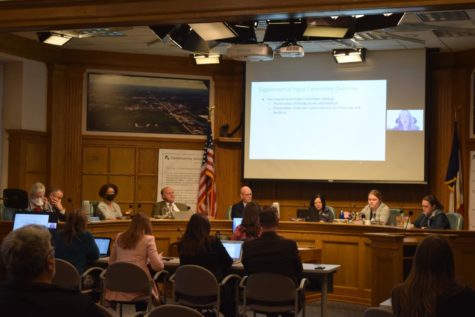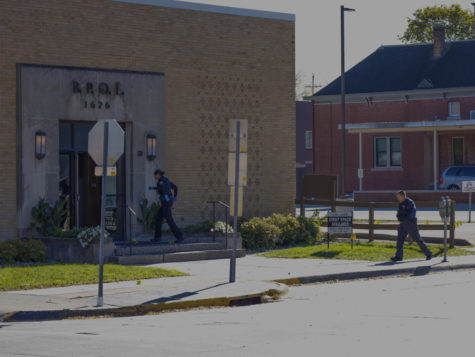Primaries: Lucy Martin
June 2, 2010
Budget Cuts: Martin said she believed there needed to be a better process in place for determining the budget allocations, one that would start earlier in the year.
“Even though we don’t start getting actual numbers of tax revenue until later in the year, the assessors have a pretty good idea of how much money we’re going to get,” she said.
She said the Board of Supervisors also has to set a clear policy for how the budgeting process is going to work so that departments know what rules they have to adhere to.
“I think that’s the real problem, the system in place is so amorphous that I think a lot of people are looking for direction,” Martin said.
Health Care: Martin said the Board of Supervisors had a big problem on their hands when dealing with issues of how to properly allocate mental health spending in the county.
“The state cut spending on mental health last year. And if you read the code of Iowa, there is a floor on how much spending on mental health you can cut, so basically the state is not following its own rules right now,” she said. “They wrote this legislation in 1996, the counties agreed to this. The point was to move mental health away from property tax funding and for the state to fund fully across the counties without it being based on your property tax base.”
Martin said the state hasn’t fulfilled its part of the bargain and now counties are being stuck with the burden of funding most, if not all of their mental health care needs.”
Martin said the law was outdated and didn’t anticipate counties would have to put up so much of their own funding.
“The state never revisited it and my feeling is they should either give us back the local control that we had before or fully fund it in the way that the legislation was originally inteded to work,” she said. “I don’t like to see our most vulnerable population bearing the brunt of the state’s budget woes.”
Martin said in the meantime the county was going to have to work within the system.
“Our current staff does a really good job making the situation work,” she said.
Jobs and Economic Development: Martin said she believed it was the Board of Supervisors role to foster synergy among the cities in Story County.
“We work for the whole county, so our job, really, is to bring the cities together,” Martin said. “A lot of the time people seem to be cutting their own deals, and I don’t know that we are all working together to achieve the kind of synergy that we need.”
She said she believed the county should play a larger role in offering incentives to bring outside investments and business into Iowa as well as encourage growth among local businesses.
In terms of tangible growth, she said the Board of Supervisors should be looking into growth along the highways and secondary paved roads in Iowa instead of completely transforming the rural landscape.
“You know what they say, ‘no farms, no food,'” she said.
Civil Rights: Martin said the first thing she would address is the lack of a human resources director, which has a huge impact on oversight of diversity hiring in Story County.
“We’ve not been with a human resources director since January 11, 2008, and these are the kinds of issues that a human resources director would be dealing with,” Martin said.
She said she believed Story County may fare better when stacked up against comparable counties, because Iowa State attracts a more diverse group of people. However, there are still issues that need to be addressed and hiring an HR director would help with those problems.
















